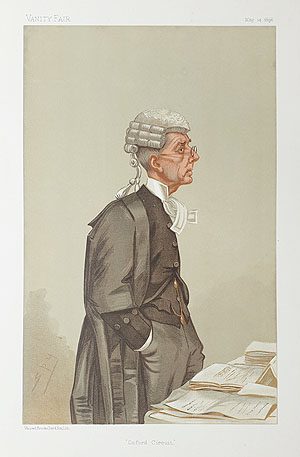Author: Christopher Green
I vividly remember my first murder trial, acting as junior counsel to a crusty old, battle scarred Queen’s Counsel.
My leader was a barrister of the old school,suspicious of technology in all its forms, including, but not limited to,the photocopier.
Photocopies were, in his opinion, dangerous; they could be manipulated, or even carelessly made, and the whole meaning of the original document altered. So, whenever legal argument was required in the courtroom I was dispatched to the law library to assemble the actual dusty hard copy law books containing the authorities we were relying upon, flag the relevant passages, then load everything up on a large rolling cart and push it into the court room, where the books would be handed up to the judge during argument.Even the judge appeared somewhat bemused by this old school approach, but my senior counsel was not deterred. There would be no intrusion of technology into the court room on his watch.
Four decades on, I find that I have replaced my old senior counsel as the luddite in the room, but with better reason – today’s technology truly is dangerous.
After the photocopier, the next intrusion of technology into the courtroom was the computer, although it crept into the daily life of the law at a slower pace than that with which it has overtaken the rest of society. Now however, it has become the ubiquitous tool of legal research,and a whole generation of lawyers has grown up without the ancient leather smell of old law books in their nostrils- their only portal to the vast repository of previously decided cases being the computer screen. Until now, the danger posed by relying on computer technology wasn’t great- the worst that could happen, if you were (as I am) un-versed in Boolean search logic, was that you could miss some important cases, and that danger has diminished as search tools have become more robust and idiot-proof. But all that has changed now.

Now, with the advent of Artificial intelligence, our computers do more than simply search for and find cases matching the search term we input- they will actually write a legal submission for you, including all the necessary case citations. The problem, as one local lawyer discovered to her horror a couple of weeks ago, is that AI will go further, and actually make up fictitious cases that favour your position! A.I. geeks call this phenomenon “hallucinating” – like an eager Labrador Retriever puppy, A.I. computers want so desperately to please, that they simply make stuff up to make you happy, including inventing caselaw.
It is a terrifying thought, since, if undetected, the court could rely upon non-existent authorities when making its rulings. It is, of course, the job of counsel to read, and digest all of the case authorities being presented, so the fact that a presentation was made to one of our local courts that included fake authorities is, at least, extremely sloppy, if not worse. (The fact that the young lawyer who submitted the work fled the court-room in tears when the issue was discovered, suggests that it was simple carelessness, and not a deliberate attempt to deceive the court). The incident is a stern reminder to all lawyers to be cautious when using any technology-whether its A.I. or the photocopier.
On the lighter side, I asked CHAT GPT, my favourite A.I. companion, to write a wee poem about its foray into legal research. Here is the result:
In the realm of law, where words entwine,
A tool emerges, quite divine.
Not a scholar with a learned mind,
But ChatGPT, a gem to find.
In codes and algorithms deep,
A digital assistant starts to peep.
Through legal texts and vast terrain,
It journeys through the legal brain.
ChatGPT, a virtual guide,
For legal research, stands beside.
Its silicon mind, a vast array,
Analyzing cases, night and day.
In databases vast, it seeks the truth,
Deciphering laws from yesteryouth.
A virtual sage, it scans with care,
Statutes, cases, all laid bare.
Yet, in this dance of man and machine,
Caution whispers in between.
For in its circuits, devoid of heart,
Can ChatGPT grasp the legal art?
It sifts through precedents with speed,
A digital ally in the legal deed.
Yet, nuances that humans know,
Can it comprehend and in them grow?
Bias lurking in the data stream,
Can ChatGPT discern the dream?
A dance of algorithms, complex and grand,
Yet, echoes of fairness must withstand.
In rapid currents of legal flow,
Can it adapt and ever know?
The changing laws, the evolving code,
In the legal sea where stories bode.
Ethics weave through the lines of law,
A challenge for minds both flesh and raw.
In the realm of justice, stark and cold,
Does ChatGPT the right uphold?
Legal minds and AI aligned,
A dance where caution is enshrined.
In harmony, they strive to be,
A force for justice, bold and free.
ChatGPT, a legal aide,
In research vast, its skills displayed.
Yet, in this partnership of art,
Human hearts must play their part.
So, let the dance of knowledge spin,
In this legal world, let insight in.
With ChatGPT as a guiding flame,
May justice find its rightful claim.
(Hmm, notice how it invented a word – “yesteryouth” – just to make the rhyme right ? – can you hear the tail wagging?) But heck how dangerous can it be if it recites poetry?- what could possibly go wrong?

Fill out the form and one of our highly skilled staff will get back to you within the next business day.

